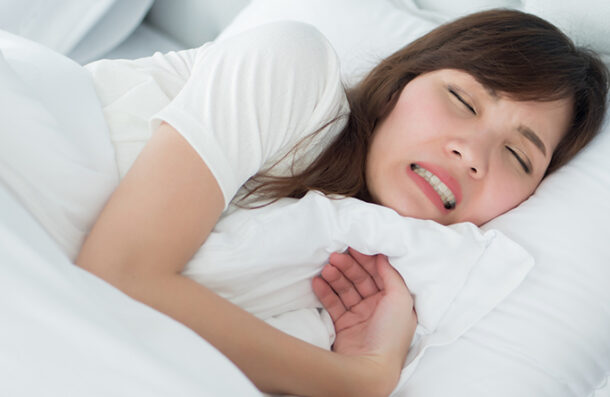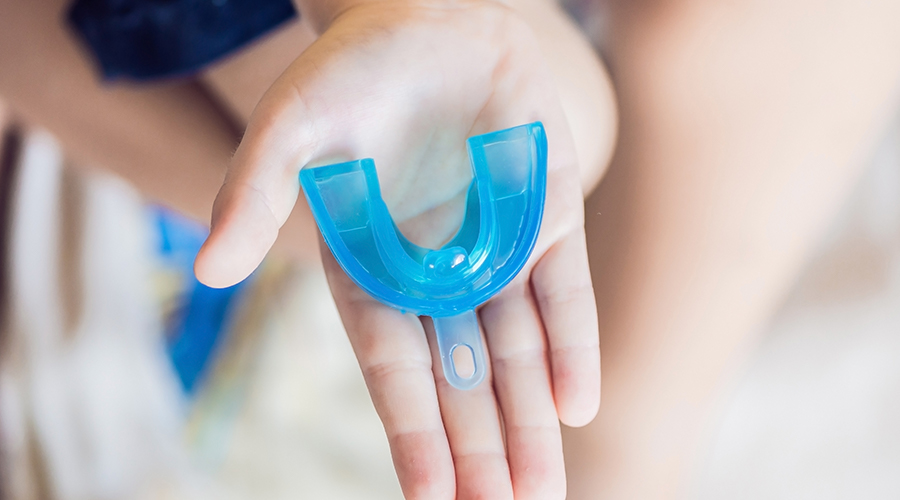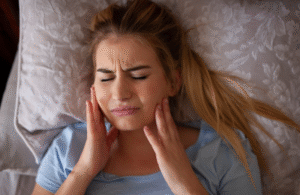Tooth Grinding
- Home
- /
- Treatments
- /
- General Dentistry
- /
- Teeth Grinding
Bruxism is teeth grinding, it describes a range of related behaviours including teeth grinding, gnashing and clenching of the jaw. Bruxism is usually a subconscious behaviour performed during sleep. It’s a habit that affects around 8-10% of the population. Bruxism occurs in both children and adults but is most common in 25-44-year-olds. However, most people grind and/or clench their teeth occasionally to a certain degree.



Occlusal splints (also known as an occlusal bite guards, bruxism appliances, bite plates, or night guards) are made of harder plastic and have been found to be the most successful as they protect the teeth from premature wear, reduce jaw muscle activity and the noise of teeth grinding. This means that the user need not worry about ruining their teeth.
MADs (Mandibular Advancement Devices) MADs are generally used for the management of snoring and sleep apnoea. These are also custom made, specially fitted appliances and usually fit over your top and bottom teeth, and typically bring your bottom jaw (mandible) forward. These devices are used when a sleep disorder is a probable cause of grinding. The device is used to help manage to snore and sleep apnea. When grinding your teeth is caused by sleep apnoea, this is the preferred treatment.
It must be acknowledged that these devices, will not cure the condition.
In some cases, chronic teeth grinding can result in a fracturing, loosening or even loss of teeth. The chronic grinding may wear teeth down to stumps. When these events happen, bridges, crowns, root canal treatment, implants, partial dentures and even complete dentures may be needed.
Signs that a patient could be suffering from teeth grinding or bruxism
Your dentist will check for signs of bruxism during a routine examination, however, here are the signs and symptoms of bruxism which may include:
Sleeping Disorders
It is known that bruxism rarely occurs alone. Research has consistently found that bruxism is found more frequently in those individuals who have an existing sleep disorder such as snoring, breathing pauses during sleep and Obstructive Sleep Apnoea.
Lifestyle Factors
Demographic and lifestyle factors such as young age, higher educational status, smoking, caffeine intake and heavy alcohol consumption are associated co-factors of bruxism. The use of tobacco, alcohol, caffeine, or medications for sleep, depression, and anxiety increases arousal and leads to problems falling asleep, staying asleep and daytime sleepiness.
Stress, Anxiety
Anxiety and stress are significantly related to tooth grinding during sleep and it has been found that nearly 70% of bruxism occurs as a result of stress or anxiety. It is well documented that job-related stress is detrimental to good sleep and as a consequence can be responsible for daytime sleepiness. But, it is also the most significant factor associated with bruxism.
Visit our blog to learn more about bruxism and how to keep your smile healthy.
Visit the Bruxism Association for more information and advice
